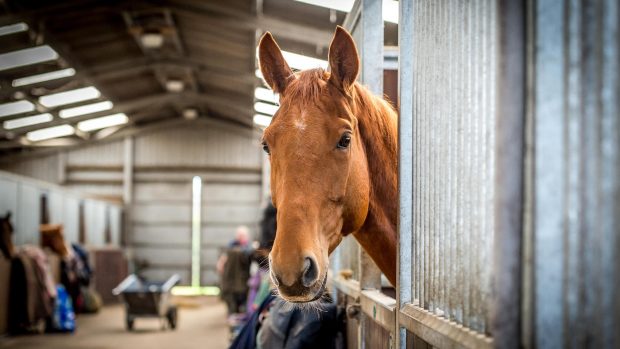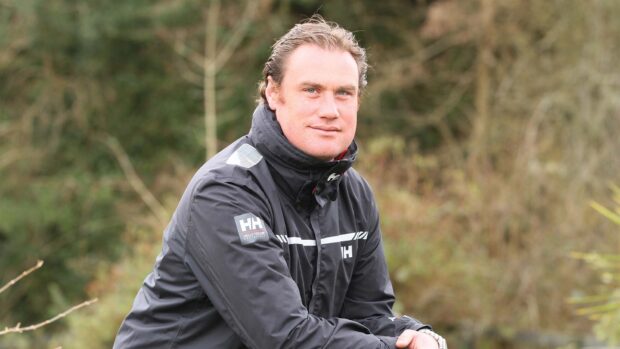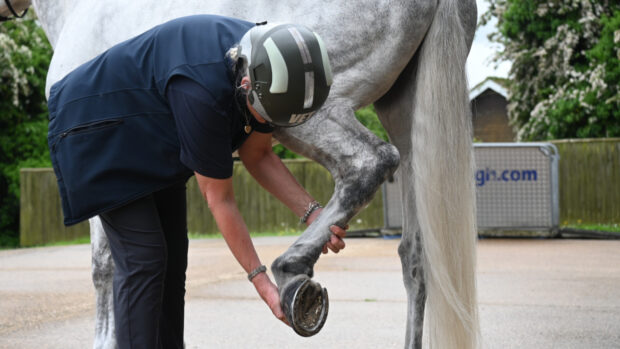Calls have been made to update pre-purchase examination (PPE) guidelines to include more on dental checks – as many owners are “largely in the dark” about the current “minimal” procedure.
The topic was addressed by Rob Pascoe of Equine Dentistry Referrals in a session titled “Is there a role for dental pre-purchase examination?” at the British Equine Veterinary Association (BEVA) Congress (11–14 September).
Current PPE guidelines, set out by BEVA and the Royal College of Veterinary Surgeons, include an examination of the horse’s incisors – but not a full inspection using a gag.
The guidance adds that an examination using a gag “may be included as an additional procedure; however, some dental abnormalities may only be detected by a more detailed exam using sedation and a dental mirror or orascope”.
Mr Pascoe believes the PPE process “has tended to overlook the field of dentistry” – and said there are conditions of the oral cavity that can prejudice a horse’s suitability for intended use.
“Owners can find themselves purchasing animals with significant dental problems, ongoing treatment costs, and they’re not aware,” he said.
“The guidelines state that the preliminary [PPE] examination includes an examination of the incisor teeth; it doesn’t mention what the purpose of that examination is. Some vets interpret that as ‘to look at the age of the horse’.”
Mr Pascoe said buyers are “largely in the dark about the minimal dental examination in the standard PPE” – and that he has seen cases of owners discovering dental issues after buying a horse.
“Our understanding of equine dental disease has changed dramatically in the past 25 years, we’ve got a greater range of diagnostic tools and treatment options, yet the PPE hasn’t really changed in decades,” he said.
“I think we need to be far more open with purchasers about the limitations of all PPEs, including the five-stage process. So many clients say, ‘I’m having a five-star vetting’ and it’s not – it’s a five-stage, and those stages are clearly defined.
“There’s a general failing of us as a profession, and I think that is damaging the reputation of the profession and the PPE process. Vets need to be clear with buyers that oral examination is not included, explain the ramifications and give owners the opportunity to request additional assessment.”
Mr Pascoe believes PPE guidelines should be updated and include an “approved format for additional examinations” – but he highlighted potential challenges.
These could include the risk of a horse injuring itself while wearing a gag, whether sedation is required – and the dilemma if a sale did not go ahead and a different buyer wanted to blood-test the horse in a PPE soon after. He said any changes to guidelines would need to be discussed by all the relevant parties, including vets carrying out PPEs.
BEVA veterinary projects officer Lucy Grieve told H&H that in buying horses there is much focus on common concerns such as lameness and sarcoids.
“However, the mouth can be a site for some serious conditions that may render a horse unrideable,” she said.
“It is expected [in a standard UK PPE] that the incisor teeth are checked, to ensure the age of the horse is approximately correct; vets will simultaneously assess for any lesions or abnormalities in this area.
“A thorough examination of the horse’s mouth requires sedation in most cases, as well as specialist equipment and knowledge. This is clearly not practical or affordable for the standard PPE. However, it is always an option to perform ‘additional procedures’, which may be advised where the vet identifies an issue in the horse’s history or clinical examination that warrants more in-depth examination.”
Ms Grieve said some vets will extend the oral exam with a head torch and gag, out of goodwill and if the horse does not need sedation.
“It’s important purchasers know and understand the mouth is not routinely examined as part of a standard PPE, but it is possible to request additional procedures, which invariably requires sedation and specific equipment and comes with associated costs,” she said.
“Purchasers need to fully discuss the options available to them with the vet, and base their decision on weighing up the risks and financial costs, which will be an individual choice.”
Do you think a full dental examination should be included during a pre-purchase examination, or would you happily pay extra for one? Let us know at hhletters@futurenet.com, including your name, nearest town and county for the chance to be published in the letters page of Horse & Hound magazine
- To stay up to date with all the breaking news throughout Blenheim Horse Trials, Horse of the Year Show, London International and more, subscribe to the Horse & Hound website
You may also be interested in:

The challenges of identifying – and managing – pain in horses

Double bridles create less pressure than snaffles in elite dressage horses, research finds

Subscribe to Horse & Hound magazine today – and enjoy unlimited website access all year round




